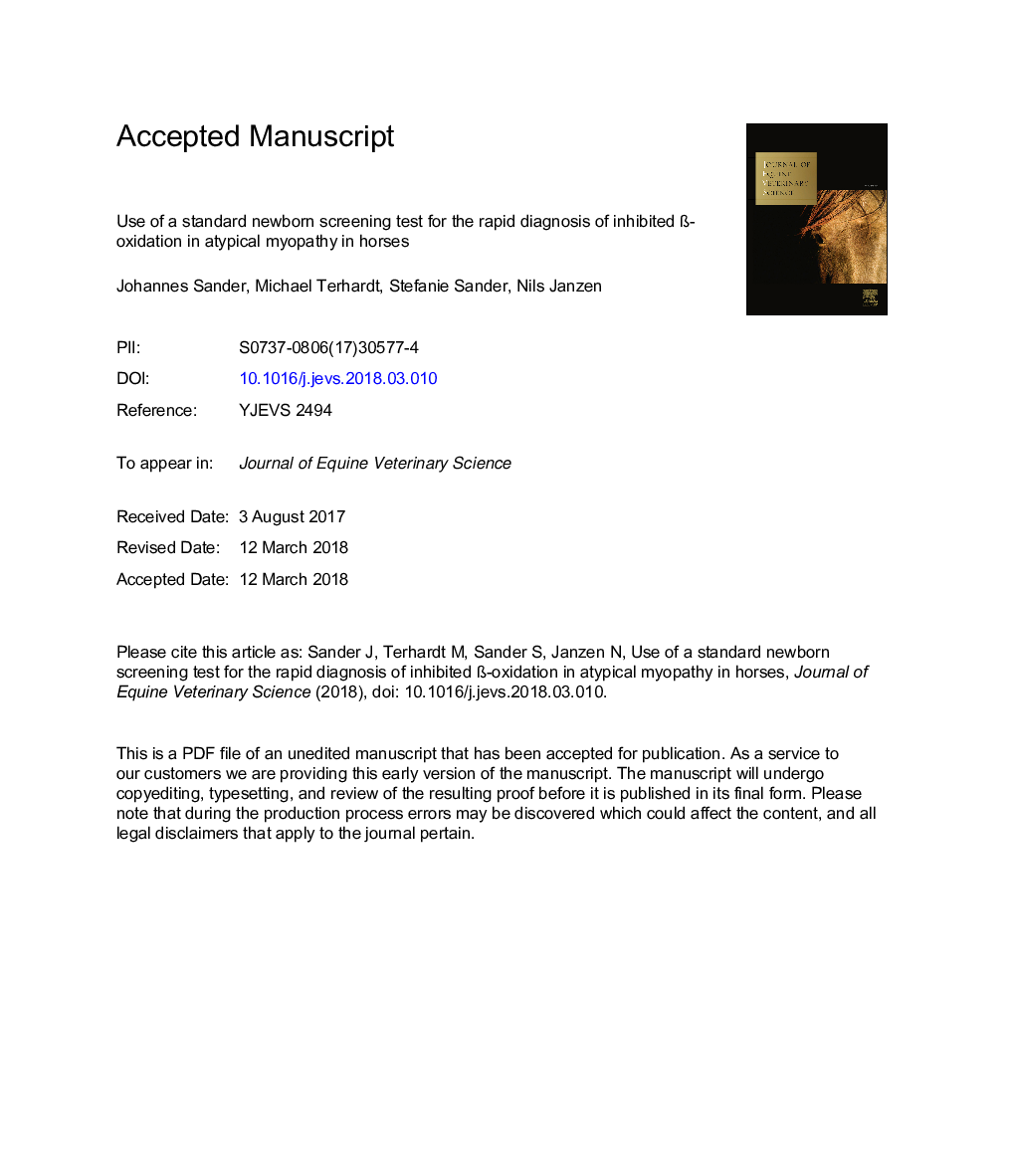| Article ID | Journal | Published Year | Pages | File Type |
|---|---|---|---|---|
| 8482602 | Journal of Equine Veterinary Science | 2018 | 20 Pages |
Abstract
Atypical myopathy (AM) in horses is caused by ingestion of seeds or seedlings of some maple trees (Acer species, sapindaceae family). Elevated concentrations of acyl conjugates, a sign of inhibited Ã-oxidation of fatty acids, are diagnostic for AM. Quantification of acyl conjugates is currently not part of the standard test scheme of veterinary laboratories but is done routinely in laboratories screening human newborns for inborn errors of metabolism. It was our aim to show that the screening method, which is based on the use of whole blood dried on filter paper, can be applied to samples from horses with the single methodological adaptation, that is, spotting serum instead of whole blood on the filter paper. Acylcarnitines (ACs) were measured by tandem mass spectrometry after butylation. Results were compared with those obtained by ultraperformance liquid chromatography-tandem mass spectrometry (UPLC-MS/MS) in the corresponding liquid samples. Inhibition of fatty acid Ã-oxidation was unequivocally shown by elevated concentrations of butyryl-/isobutyrylcarnitine, valeryl-/isovalerylcarnitine, and hexanoylcarnitine (intraday coefficient of variation < 20%) in horses affected by AM. To be able to use the existing analytic tools and methods of the screening laboratories, no attempt was made to include the toxins and their metabolites in the test. Rapid diagnosis of inhibited Ã-oxidation indicating AM in horses is possible by a routine test available in pediatric screening laboratories.
Related Topics
Life Sciences
Agricultural and Biological Sciences
Animal Science and Zoology
Authors
Johannes Sander, Michael Terhardt, Stefanie Sander, Nils Janzen,
